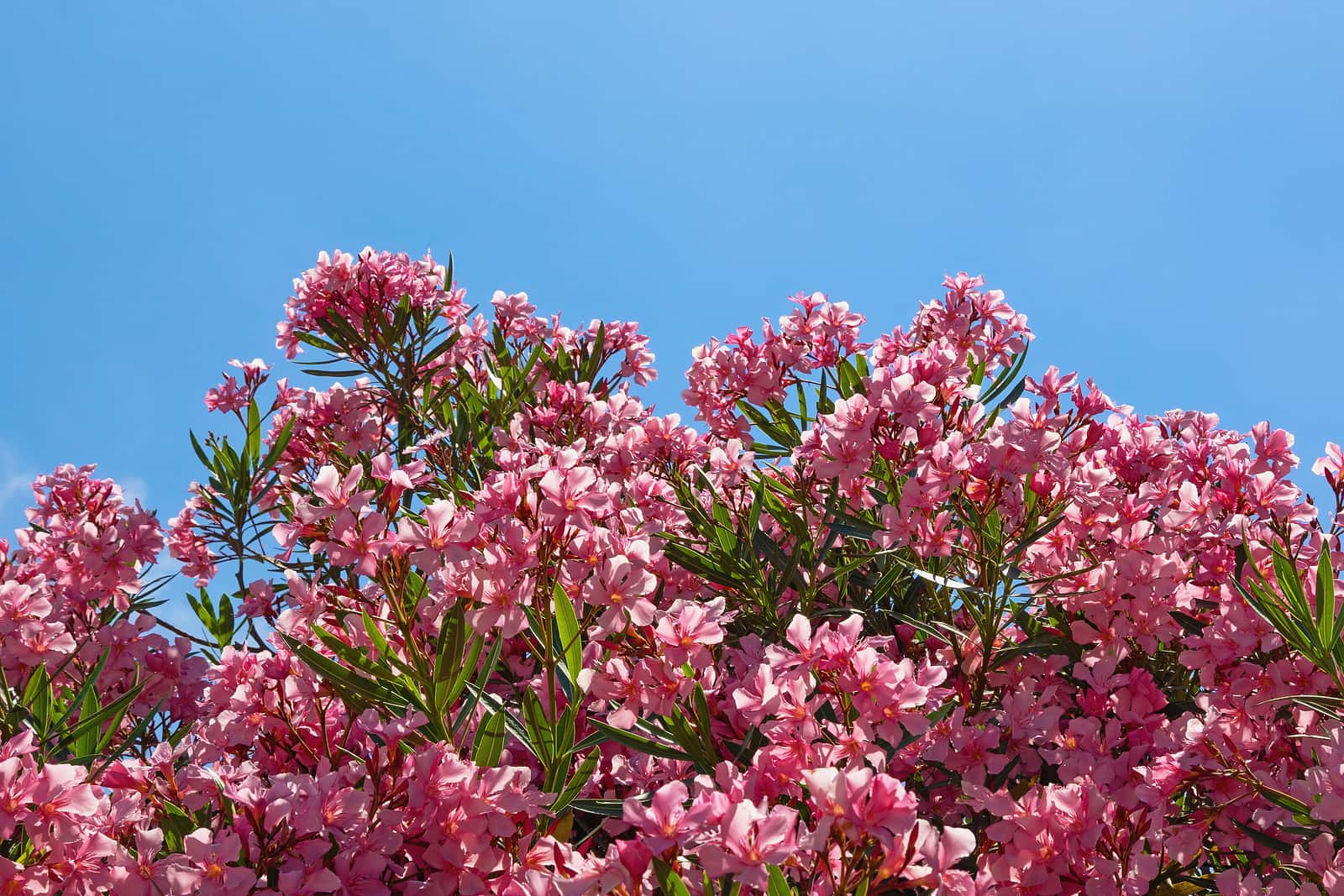
Oleander is a flowering shrub that thrives in warm climates around the world. It’s not fussy about soil, so landscapers frequently utilize it in sandy areas. Now people are talking about a possible medicinal use for oleander extract, oleandrin.
Could Oleander Extract Fight SARS-CoV-2?
Scientists in Galveston, Texas, have tested oleandrin for antiviral activity against SARS-CoV-2. Their study was posted on bioRxiv, July 15, 2020, and has not yet been peer reviewed or approved for publication, so it is very preliminary. The investigators used cell cultures to find out if the oleander extract could inhibit viral replication or keep the virus from invading the cells in the culture. According to the study, the compound can do both.
The authors write in a very hopeful tone:
“The potent prophylactic and therapeutic antiviral activities demonstrated here strongly support the further development of oleandrin to reduce the severity of COVID-19 and potentially also to reduce spread by persons diagnosed early after infection.”
It is a very long leap from this preliminary research to a treatment for COVID-19, however. The next step in developing any therapeutic compound would be animal research. After that, researchers would do clinical trials. Two of the study authors have a financial affiliation with the company that hopes to sell oleandrin. Well before these or other investigators could conduct studies in animals, though, they would need to address the extract’s toxicity.
Oleandrin Is Poisonous:
Anyone who considers using oleander extract therapeutically should be warned that leaves, flowers, stems and roots are poisonous. Oleandrin itself is a cardiac glycoside, but it can also have toxic effects on the nervous system and the digestive tract. Birds don’t appear to be sensitive to the poison, but horses, dogs and humans are. However, because it tastes bitter, people don’t usually consume it.
The American Botanical Council put out a notification to consumers
“not to ingest any parts of the plant, or capsules, tablets, teas, or extract preparations made from leaves or other parts of the oleander plant because it contains chemicals that can cause serious effects to the human heart, including death.”
Citations
- Plante KS et al, "Prophylactic and therapeutic inhibition of In Vitro SARS-CoV-2 replication by oleandrin." bioRxiv, July 15, 2020.

